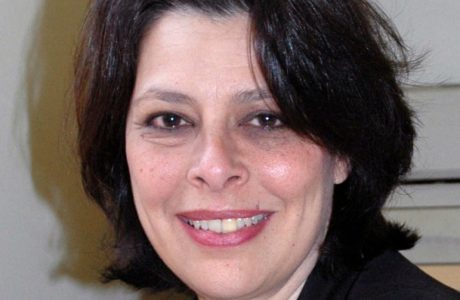Institution: New York University
W
U
- University of Delaware
- United Nations
- United Cities and Local Governments
- University of Pennsylvania
- Università di Macerata
- University of Oxford
- United Nations Development Programme
- UN Statistics Division
- UNESCO Information for All Programme
- United Nations Environment Programme
- University of Queensland
- Universidade Estadual do Rio de Janeiro (Federal Rural University of Rio de Janeiro)
- University of the Philippines
- University of California - Irvine
- University of Victoria
- UN-Habitat
- University of Cape Town
- University of Exeter
- United Nations Economic Commission for Africa
- UNICEF
- Università degli Studi di Siena
- Università degli Studi di Napoli Federico II
- Université de Sousse
- United Technologies Research Center
- Università degli Studi di Tuscia
- University of Jordan
- University of California - San Francisco
- UNESCO World Water Assessment Programme (WWAP)
- University of Wollongong
- UNU-WIDER
- Unilever
- University of Gothenburg
- UNESCO
- United Nations Economic Commission for Europe
- UNESCO Global Network of Facilitators
- University of South Africa
- University of Antwerp
- University of Music Franz Liszt Weimar
- UNU-CRIS
I
- International Union for the Conservation of Nature
- International Monetary Fund
- International Institute for Applied Systems Analysis
- Institute for Sustainable Development and International Relations
- Indian Institute for Human Settlements
- International Telecommunication Union
- International Ocean Institute
- India Federation of Self Employed Women's Association
- International Civil Society Action Network
- International Institute for Environmental Development
- ICLEI - Local Governments for Sustainability
- International Labour Organization
- IHE Delft
- International Fertilizer Association
- Islamic Development Bank Institute (IsDBI)
- Istanbul International Center for Private Sector in Development (IICPSD)
- International Labour Organization (ILO)
- International Social Security Association
S
A
- Ain Shams University
- American University
- Athens University of Economics and Business
- African Center for Cities
- Association of Caribbean Energy Specialists
- All India Institutes of Medical Sciences
- Australian Resilience Centre
- Alliance for Global Water Adaptation
- Academy of Korean Studies
- Ahmedabad University
M
H
E
F
- Federal Government of Ghana
- Fundação Getulio Vargas
- Facultad Latinoamericana de Ciencias Sociales
- Federal Government of Chile
- Federal Government of the United States of America
- Foundation for the Global Compact
- FAS - Fundação Amazonas Sustentável (Amazonas Sustainable Foundation)
- Former President of Colombia
- Former Prime Minister of Norway
- Former UN Secretary-General
- French High Council for the Financing of Social Protection
C
N
- New School
- Natural Resource Governance Institute
- National Disaster Management Authority (India)
- National Research University Higher School of Economics
- National Wildlife Federation
- New York University
- Northumbria University
- National Autonomous University of Mexico
- National Institute of Archaeology and Heritage Sciences of Morocco
G
K
D
P
B

Hirokazu Yoshikawa
Hirokazu Yoshikawa is the Courtney Sale Ross Professor of Globalization and Education at New York University Steinhardt and a University Professor at NYU. He is Co-Director, with Larry Aber, of the Global TIES for Children Center at NYU. He is a community and developmental psychologist who studies the effects of public policies and programs related to immigration, early childhood, and poverty reduction on children’s development in low- and middle-income countries and in the United States. Since 2013 he has co-chaired the Sustainable Development Solutions Network (SDSN) Thematic Network on Early Childhood Development and Education and has led SDSN work in Early Childhood Development. He serves on the Boards of the Russell Sage Foundation and the Foundation for Child Development, and on the advisory boards of the Open Society Foundations Early Childhood Program and the UNESCO Global Education Monitoring Report.

Catherine Tamis-LeMonda
Catherine Tamis-LeMonda is Professor of Applied Psychology at NYU’s Steinhardt School of Education, Culture, and Human Development. Her research is focused on infant and toddler learning and development among diverse populations in the United States and in Europe, Central Asia and East Asia. Her research considers the development and contexts of young children’s language and communication, object play, cognition, motor skills, gender identity, emotion regulation, and social understanding, and the long term implications of early emerging skills for children’s developmental trajectories. She investigates how skills in different domains reciprocally affect one another and snowball over time (that is, the theoretical construct of developmental cascades), and examines the role of socio-cultural context on early development. A core emphasis of this research is on the quality of mothers and fathers interactions with children in particular their contingent responsiveness and richness of child-directed language in relation to children’s development and, conversely, how emerging communicative skills in children influence their everyday learning experiences and interactions with parents.